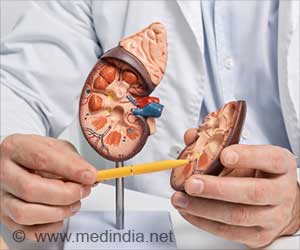Initial tests on a farm and a theme park near the area of foot and mouth disease scares in southeast England have not shown any sign of the virus, Britain's chief vet said Wednesday.
Initial tests on a farm and a theme park near the area of foot and mouth disease scares in southeast England have not shown any sign of the virus, Britain's chief vet said Wednesday.
Debby Reynolds told a London press conference that a farm cordoned off in the county of Kent and the Chessington World of Adventures in neighbouring Surrey have both been given the all-clear for the disease."Overnight the first preliminary test results have come in. I want to emphasise they are preliminary results but they are negative and we are now waiting for further test results," she said.
"I think this demonstrates the tremendous vigilance that people are showing and the speedy response but clearly we need to keep aware that we haven't got the final test results from these premises and there may be the need to set up further temporary control zones throughout the day."
A three-kilometre (1.8-mile) temporary control zone was imposed around the farm, in the Romney Marsh area of Kent, on Tuesday after the farmer reported suspicious lesions on the muzzles of his calves.
A similar exclusion zone was later thrown up at the Surrey site after one of the theme park's sheep began to display symptoms of illness, raising fears that the highly contagious virus may have spread.
Britain's agriculture ministry confirmed Wednesday that the two temporary control zones had been lifted.
Advertisement
A second case on a nearby farm was identified soon after but two other farms where the disease was suspected were subsequently given the all-clear.
Advertisement
As a result, the restrictions on animal movement within the original protection and surveillance zones have been eased, allowing farmers to move livestock around a farm within three kilometres for welfare reasons.
That, for example, means cattle could be moved from a field to a milking shed on another part of the farm.
Public health officials are investigating whether the virus may have leaked from an animal disease research centre near the affected farms because the strain was identical to that used at the centre recently.
The site, at Pirbright, houses the government-run Institute for Animal Health and the vaccine producer Merial Animal Health Limited, which is jointly run by US drugs company Merck and Co. Inc. and France's Sanofi-Aventis SA.
Both laboratories have denied any breach in their biosecurity procedures.
In all, nearly 600 animals, including cattle, pigs, sheep and goats, have been killed since the outbreak began, some as a precaution because of suspected "dangerous contact" with infected livestock.
Restrictions on the movement of livestock directly from farms to slaughterhouses and the collection of dead animals have now been relaxed, although a ban on all other movements of susceptible animals remains in place.
The European Union is to hold a meeting of its veterinary experts group on August 23 to consider the possibility of easing its export ban on British meat and livestock, which is currently imposed until at least August 25.
Source-AFP
LIN/J







